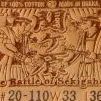-
hello 2024!
supertalk is free to browse as a guest. You need to be a member to participate in discussions or buy and sell on the classifieds.
Classifieds listings are now free for members.
supertalk is now upgraded to //// supertalk 8 ////
______________________________________
New membership is $US 1 / month
Payable $US 6 / every 6 months
You can cancel renewals prior to renewal date.
______________________________________
You can also become a premium superseller or supermember. Businesses who want to promote their brand and products need to become a supersponsor. superfuture® is privately owned and has been online continuously for 25 years. supertalk has been online for 21 years and is a digital cockroach that will survive all current and future apocalypses.
-
Similar Content
-
- 0 comments
-
- 2 replies
- 3450 views
-
- 0 replies
- 2278 views
-
- 0 comments
-
- 2 replies
- 1301 views
-
-
Top 10 Active Viewed Topics
-
- 26757 replies
- 5966891 views
-
- 24123 replies
- 5848907 views
-
- 24722 replies
- 4303209 views
-
- 22877 replies
- 3344179 views
-
- 13545 replies
- 3161511 views
-
- 10643 replies
- 3087332 views
-
- 21111 replies
- 2695119 views
-
- 13243 replies
- 2657938 views
-
- 8532 replies
- 2338982 views
-
- 11326 replies
- 2305487 views
-














Recommended Posts
Join the conversation
You can post now and register later. If you have an account, sign in now to post with your account.